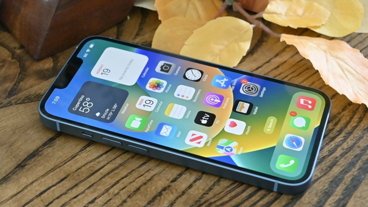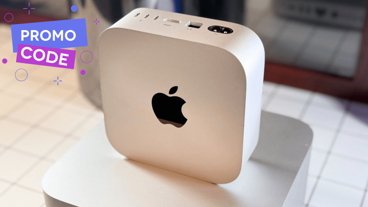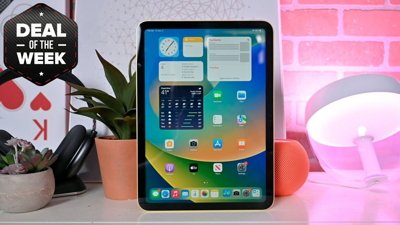On stage at the Mobile World Congress, Andy Lees, Microsoft's senior vice president of its mobile communications business, stated the company had reached a milestone of 50 million devices sold over the lifetime of the platform, which stretches back into at least 2003 (and perhaps earlier, depending on how the company kept count through several names changes of its smartphone and PDA products built on Windows CE).
The Windows Mobile partner
A report by Tricia Duryee for monoNews covering the event stated that HTC CEO Peter Chou then got on stage and announced, "I’m an old veteran of Windows Mobile. We try really hard to make all the visions happen, and we have sold more than 40 million HTC Windows mobile phones around the world.†That leaves a small minority of Windows Mobile devices ever built to originate with the rest of Microsoft's range of licensees.
HTC, once known as High Tech Computer, is a Taiwanese company that began making phone sets using Microsoft software in 2002. By 2005, it had grown to sales of $2.2 billion, double that of the year before, making it the fastest growing tech company that year according to BusinessWeek.
In addition to its own HTC branded handsets, the company also acts as an ODM (original design manufacturer), selling its designs under other companies' names. That includes both phone providers such as AT&T, Sprint, T-Mobile, Verizon, Vodafone, and Orange, as well as conventional hardware makers such as Dell, HP, Fujitsu-Siemens, and Sharp.
Leaving the fold
The fact that HTC makes the vast majority of phones running Windows Mobile has been glossed over in Microsoft's marketing, which suggests the company has a broad and diverse number of hardware partners dedicated to the platform. In reality, while many makers have shipped a phone running Windows Mobile, most of them have since moved on or have primary interests elsewhere.
Last year, Samsung debuted its new Omnia and Sony Ericsson unveiled its XPERIA X1, both running Windows Mobile 6.1. At this year's WMC however, Samsung was prominently touting its OmniaHD and Sony Ericsson the Iduo, both of which are now running Symbian instead.
Just prior to the event, Palm showed off its new Pre, running the company's new, internally designed webOS rather than Windows Mobile, which Palm began using in 2006. When Palm began licensing Windows Mobile in its Treo smartphones, it doubled Microsoft's software market share of US smartphones at Palm's expense. Seeing Palm strike out on its own is not good for Microsoft, but it's also unwelcome news to HTC as well, which actually built the Treo for Palm.
Even more strikingly, HTC itself joined Google's Open Hardware Alliance as a founding member in 2007 to promote Android, which serves as a free and customizable drop-in replacement for Windows Mobile. It then released the first Android-based phone last fall, the T-Mobile G1. If HTC were happy with Windows Mobile, endorsing and promoting Android is a strange way to express that.
Stealing the show
Facing the loss of its primary licensee, Microsoft stepped into overdrive to promote the future of Windows Mobile at this year's WMC. That included announcements with HTC of two new phones which will run Windows Mobile 6.5, due later this year. (According to the company, only phones released during or after WMC will be able to run the new software release; it will not be available to existing users.) HTC was forced to release its next Android phone the second day of the conference under the Vodafone brand; it will be sold exclusively in Europe by that provider.
Microsoft also spent money courting another Android OHA founder: LG. That company said it wouldn't delay its Android phones planned for release this summer, but also wouldn't be showing them at WMC. Instead, the company promoted its new co-marketing relationship with Microsoft, including a new series of Windows Mobile 6.5 phones. Those new phones won't be ready before LG's Android models, but were all LG could show at WMC given its high profile promotional deal with Microsoft.
Microsoft also announced SkyMarket, its answer to the iPhone App Store, and My Phone, its alternative to Mobile Me cloud sync and push messaging. The company also presented plans to spark the moribund Windows Mobile business by rechristening its handsets as "Windows Phones" and forcing all licensees to add a Windows Start button to their devices, just as it did on the PC in 1995.
Microsoft's catch up strategy
Of course, back in the days of Windows 95, Microsoft was already in a monopoly position on the PC desktop with DOS. In the smartphone world, Microsoft's market share is around 13%, far behind phone giant Nokia, but also slipping behind RIM and even dipping below Apple at the launch of the iPhone 3G. It also faces new competition in the software licensing business from Symbian and Android, both of which are emerging as free, open source alternatives to Windows Mobile.
When asked by mocoNews, "Why has Apple been able to move the market so rapidly and Microsoft hasn’t?" Microsoft's Lees answered “What Apple was able to do was integrate hardware and software very closely. It benefited from having the first-mover advantage." That phrasing is particularly interesting given that Microsoft, Nokia, Palm, and RIM were all in the smartphone business at least half a decade before Apple "first moved" with the iPhone.
Lees added, "Our fundamental strategy and our choice is to drive innovation by having different form factors vs. having one phone out at the same time. This approach takes slightly longer to move an industry. You saw it in the early days of the PC, too. The same thing happened where Apple had 35 percent share of all the PCs sold, but they weren’t able to compete over the long-term."
Apple may have had 35% of the market before the PC arrived back in the early days of the Apple II in the late 70s, but it was Microsoft who had and lost a "first mover" 24% share of the smartphone business in the more recent and relevant history of 2004, and was subsequently "not able to compete over the long-term." Back in 2005, Microsoft also used similar analogies to explain why PlaysForSure would push the iPod out of the way, something that the "choice and innovation drive" related to Windows Media was ultimately unable to do.
The core of Microsoft's new strategy, as Lees explained: "We moved our organization from being focused on business, and now it’s more focused on the consumer." Further, in what might come as a shock to the company's licensees, and particularly HTC, Lees said "The focus has been on the device and now it’s shifting to the software on the device." And how it will achieve this: "Every phone will have a [physical] button to get to the start menu. People will know they want a Windows Phone for both business and consumer services."
 Prince McLean
Prince McLean













 Chip Loder
Chip Loder
 Christine McKee
Christine McKee
 Malcolm Owen
Malcolm Owen
 William Gallagher
William Gallagher

 AppleInsider Staff
AppleInsider Staff
 Andrew Orr
Andrew Orr
 Amber Neely
Amber Neely






34 Comments
While playing up the fact that 50 phone makers around the world have licensed the company's Windows Mobile platform, Microsoft inadvertently let it slip out that a full 80% of all Windows Mobile phones ever made have actually come from a single maker: HTC. ...
I guess this just includes the Windows Mobile brand and not Windows CE or Pocket PC then. Back then, Palm & Windows owned the entire market and HTC did not even exist yet.
I guess this just includes the Windows Mobile brand and not Windows CE or Pocket PC then. Back then, Palm & Windows owned the entire market and HTC did not even exist yet.
It's possible that HTC were making the handsets for them even then though.
Putting my fanboy hat aside, MSFT really do need to look at how they are promoting themselves and their products. To keep saying that their open choice innovation model is the way forward is ok in an optimistic sort of way. But they keep using it to deride Apple's closed model.
This just makes them look slightly foolish because there aren't too many people who wouldn't agree that Apple's business model seems to be about as near to perfect as you'd want a business to be running in this climate.
"Is that an iceburg up ahead?"
"Never fear, we're unsinkable!"
Lees seems to say being licensed on various hardware items is "new" and "innovative" when it's exactly what they've been doing all along. MS likes to market itself as "innovative", when the only thing it innovates is new marketing strategies (and marketing firms it fires and replaces).
I guess this just includes the Windows Mobile brand and not Windows CE or Pocket PC then. Back then, Palm & Windows owned the entire market and HTC did not even exist yet.
HTC made the O2 XDA, Vodafone MDA, Dell AXIM handhelds, Compaq iPaqs and more....
For a second there Mr. Lees actually convinced me that in the business arena slow and lumbering is really better than quick and agile. The secret to an effective RDF is that you don't make claims that are so preposterously farfetched as to jar the subject out of the zombie state.
And can he just quit with the fiction that MS was able to dominate the PC industry because its product was superior to all? It is IBM that established dominance over the PC industry and then due to its own inept contracting handed it off to Microsoft. Microsoft has never, ever profitably dominated any market based on superior product quality. Any successes they had always relied on the OS monopoly that IBM gifted to them.